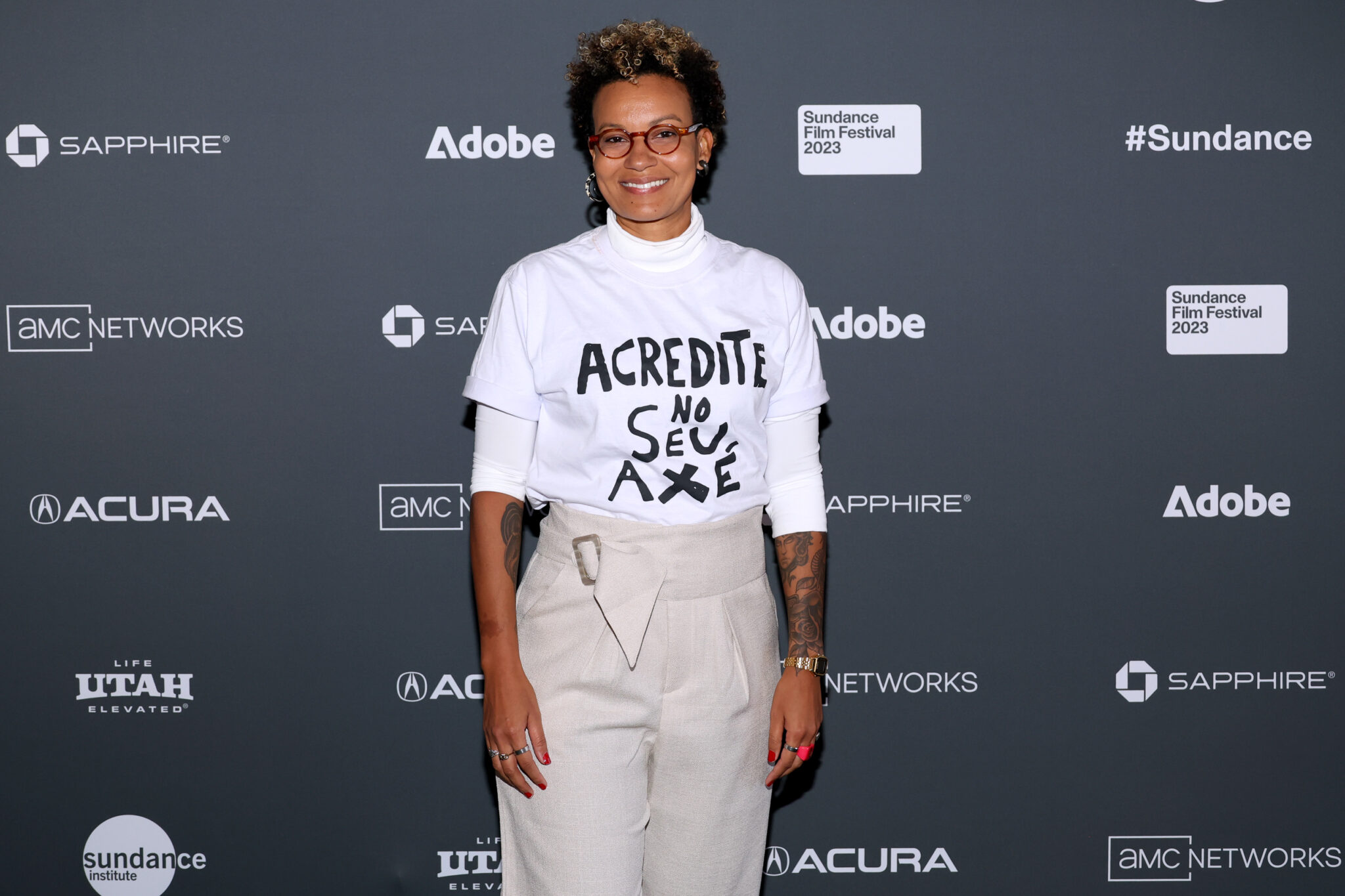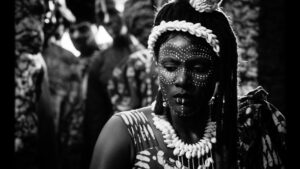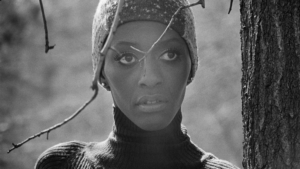Lílis Soares attends the 2023 Sundance Film Festival Mami Wata premiere on January 23, 2023 in Park City, Utah. (Photo by Monica Schipper/Getty Images)
By Stephanie Ornelas
“Cinematography is like painting life. For me, it’s very important to have texture, to have volume, to have silhouettes. [This movie] is all about beauty. It’s about the power of the Black woman.”
– Lílis Soares, cinematographer, Mami Wata
When director C.J. Obasi asked Lílis Soares to be the Director of Photography for Mami Wata (2023 Sundance Film Festival), the first thing he told her was that the film would be in black-and-white. When she heard this, she was thrilled. But she also knew it wouldn’t be easy.
“For me, it was a dream. But it was a challenge, too. You’re filming darker skin. And I’ve never done or seen something like this before,” says Soares in a Zoom interview.
Mami Wata was just recently submitted by Nigeria as its candidate for the Best International Feature Film for the 96th Academy Awards. The elegant film follows an African village whose relationship with Mami Wata, the powerful water deity, has been disrupted. Throughout the drama, sisters Prisca (Evelyne Ily Juhen) and Zinwe (Uzoamaka Aniunoh) work to restore harmony to their oceanside village after troubling events throw their community into chaos.
As the cinematographer, one thing that was top of mind for Soares was to give people of color visibility in a way that’s not typically shown in Hollywood or the film industry.
“I put Black people and people of color as my priority. Black bodies are beautiful. Sadly, we don’t often see ourselves [represented] like this [in film]. And I believe so much in this religion. It’s my religion. In Brazil, Mami Wata is an important representation for our culture.”
Soares spent a lot of time studying different techniques to execute her vision for Mami Wata. “I wanted to make the right decisions,” she explains. “The industry, in general, isn’t interested in Black bodies and developing something new or trying another gaze. But there’s a diversity of perspectives in the world. When I create, I put my gaze in the project. For me, a Black woman is a God. This is the reality that I want to see in the world.”

She was thankful that Obasi gave her the creative space to explore her ideas. “Sometimes, I was like, ‘I want to put the lights behind the head of Prisca like Jesus! I will try to create Jesus as a Black woman.’ And C.J. just let me create all the things I wanted to.”
The male gaze is an often-discussed topic in filmmaking. And Soares made it her mission to bring a new kind of viewpoint with Mami Wata.
“It’s not easy because we consume a lot of images from this industry. So, I try to watch other films from Africa and really from everywhere. There are so many different types of gazes,” she explains. And Soares has discovered that, through filmmaking, she can bring new points of view to wider audiences.
“Independent cinema is really interesting, and we need to see more things like this to put new ideas in our heads and try other things. I just want to create another beauty. I want to collaborate to create something more.”
Because cinematography is primarily a male-dominated craft, a significant challenge that Soares faced was accessing the right equipment for her frame. And it didn’t help that they had to change rental houses at the last minute, causing her to lose two weeks of shooting. When they finally got the equipment from Nigeria, some pieces just weren’t right.
“It was all designed for a man’s body. That’s something really interesting. Equipment sometimes is for men and not always for women. And sometimes, it even [physically] hurts. But we need to adapt. I understood it wasn’t designed for [my body], but I said, ‘It doesn’t matter. I’m going to make this movie. I’ll take the camera without handles, without a shoulder [rig]. But this is my camera, and I will do the thing. So, I tried.”
“We are women — we don’t have options. We need to try. We have to try to have everything in our lives — a position, a good salary, a name.”
And Soares made a name for herself on January 27 when she won the World Cinema Dramatic Special Jury Award: Cinematography at the 2023 Sundance Film Festival.
“This award is a real victory for my family because my parents believe in me all the time. To have someone like me in this position, I know what I’m here to do, and I will do it. And I know the importance of being a woman DP of color. [This award] is a real victory, but we can’t forget that we still have a lot to do. It takes time to really change. This is not the beginning, and it’s definitely not the end.”
To rise up as DP takes time, Soares explains. She’s proud of her growth and eager to collaborate with different artists to bring a fresh gaze to the industry.
“I would like to work with more women like me. We need to continue to work every day to have visibility and to have respect. Sundance was a dream. And I want to make a difference.”
To women cinematographers who aspire to be where she is now, Soares emphasizes: “You can do it. But this is not romantic. We need to be realistic. We need to study a lot. We need to not be afraid. Because this is possible. We just need to have more strategies to do what we want to do. I have my strategy. I know the aesthetics I want. I know what I want to talk about and who I want to talk to. It’s important to have a place to work without fear.”
The future of filmmaking is something Soares often thinks about as she encourages young filmmakers to bring new perspectives on screen.
“I hope, one day, if my nephew ever wants to make movies, he could work in a better place. The next generation is the most important thing for us. We are here for them. And I hope they could enjoy more time to create another gaze. But there’s a lot of work that all of us in the industry need to do to make that happen.”










